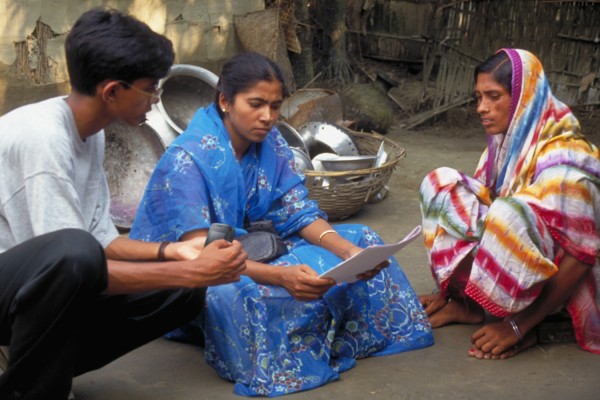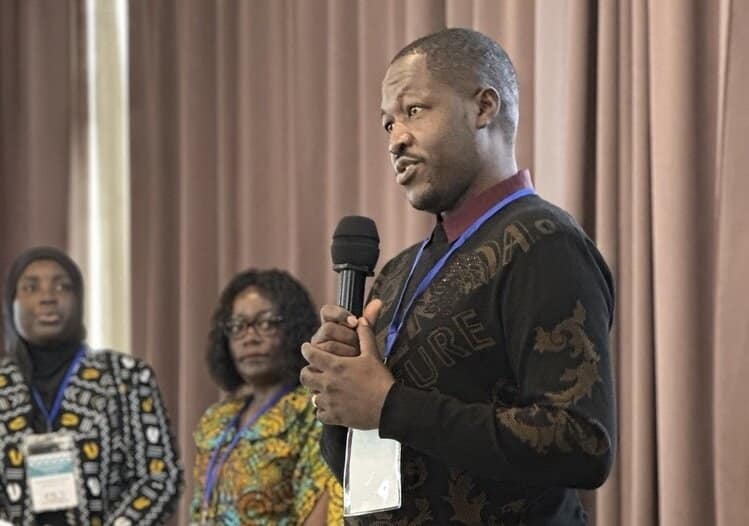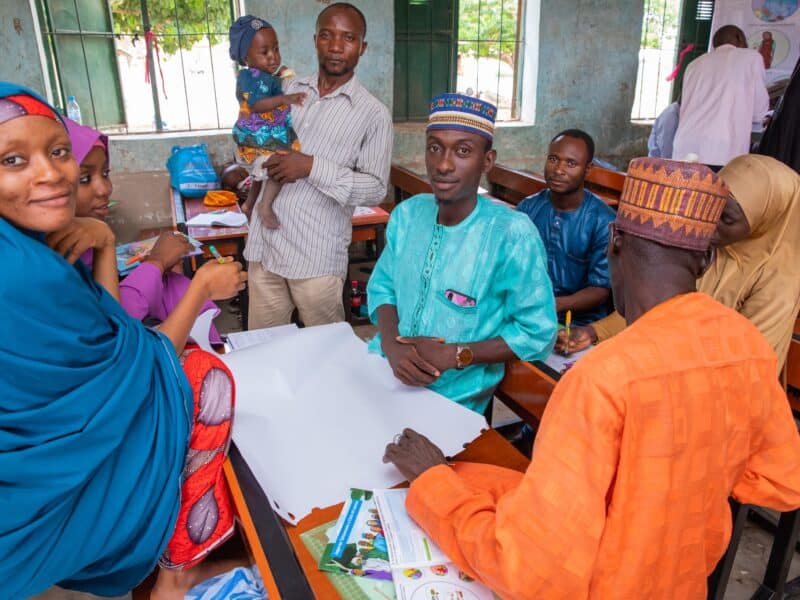The U.S. Agency for International Development has awarded Johns Hopkins Bloomberg School of Public Health’s Center for Communication Programs (JHU∙CCP) a five-year, $108-million global health communication project to assist developing countries as they lead their own projects to promote healthier behaviors.
The project – called the Health Communication Capacity Collaborative (HC3 ) – will be led by JHU∙CCP and includes Management Sciences for Health and NetHope as well as specialized communication partners InterNews, Ogilvy Public Relations and Population Services International and an array of regional and country partners. It will use state-of-the-art techniques to build the capacity of local organizations to design, implement and evaluate communication projects that make a real difference in the health behaviors of their own communities.
“We know strategic health communication can both save lives and improve their quality,” said Michael J. Klag, MD, MPH, dean of the Johns Hopkins Bloomberg School of Public Health. “JHU∙CCP is a leader in the field of strategic health communication, so we are very pleased it will be leading this innovative new project which will make a real difference on the ground.”
USAID sought an organization to lead a project focused on strengthening in-country capacity to implement state-of-the-art health communication so evidence-based behavior change programming is sustainable. It also wants the project to continue to build the research base on the impact of communication on public health outcomes. JHU∙CCP has been at the helm of numerous global behavior change communication initiatives since it was established in 1988.
“We have long known that local partners are critical to successful programs that promote healthier behaviors in areas such as HIV prevention, net use against malaria and improved maternal health,” said David Holtgrave, PhD, professor and chair of the School’s Department of Health, Behavior and Society. “HC3 will put local organizations in charge of their own healthy futures.”
In addition to capacity strengthening, HC3 will provide technical leadership in health communication that includes analysis of emerging trends, use of new communication technologies, pilot testing of new and creative approaches and development and dissemination of technical and operational guidance.
Central to the overall approach is the concept of regional exchanges for health communication and capacity strengthening. These exchanges will allow health communication specialists globally to access resources and learning opportunities, be part of a dynamic and vibrant community, enhance traditional approaches, share their expertise and tap that of others.
“At the core of all of our projects is a deep commitment to strengthen the capacity of our country partners,” said Susan Krenn, director of JHU∙CCP. “We are delighted that this project will enable us to continue to evolve the field in this area, support the growing body of health communication professionals worldwide and take advantage of new technologies that will help build sustainable capacity and reach audiences more effectively.”
The U.S. Agency for International Development administers the U.S. foreign assistance program providing economic and humanitarian assistance in more than 80 countries worldwide.
Johns Hopkins Bloomberg School of Public Health’s Center for Communication Programs is a global leader in the field of strategic health communication and knowledge management with active programs in more than 30 countries worldwide as well as in the U.S. It is part of the School’s Department of Health, Behavior and Society.





